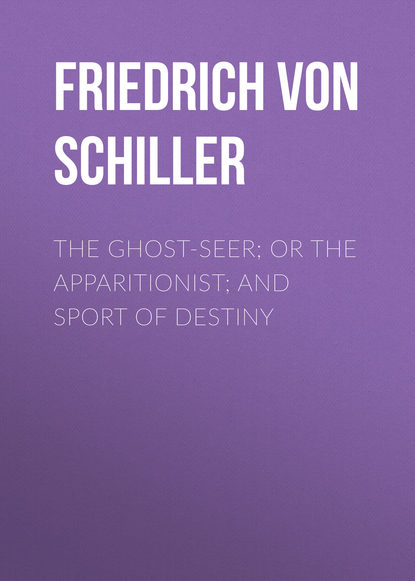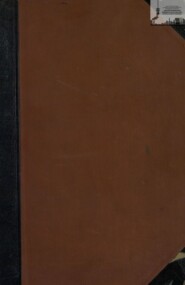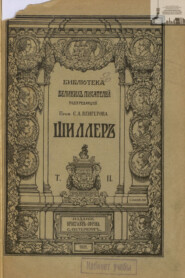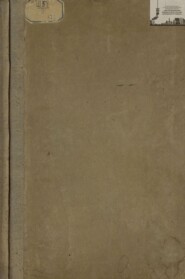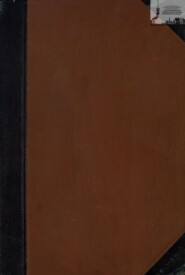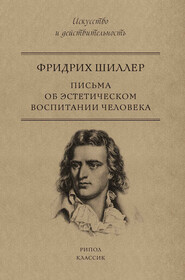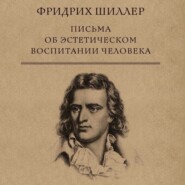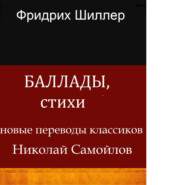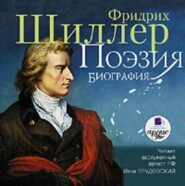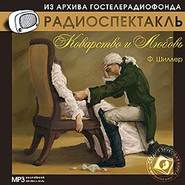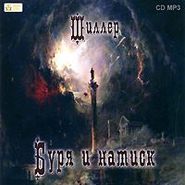По всем вопросам обращайтесь на: info@litportal.ru
(©) 2003-2024.
✖
The Ghost-Seer; or the Apparitionist; and Sport of Destiny
Настройки чтения
Размер шрифта
Высота строк
Поля
“But who art thou?” said the English lord; “and what evil spirit brought thee here?”
“I am a poor mendicant friar,” answered the wounded man; “a strange gentleman gave me a zechin to – ”
“Repeat a speech. And why didst thou not withdraw as soon as thy task was finished?”
I was waiting for a signal which we had agreed on to continue my speech; but as this signal was not given, I was endeavoring to get away, when I found the ladder had been removed”
“And what was the formula he taught thee?”
The wounded man fainted away; nothing more could be got from him. In the meantime the prince turned towards the principal officer of the watch, giving him at the same time some pieces of gold. “You have rescued us,” said he, “from the hands of an impostor, and done us justice without even knowing who we were; would you increase our gratitude by telling us the name of the stranger who, by speaking only a few words, was able to procure us our liberty.”
“Whom do you mean?” inquired the party addressed, with an air which plainly showed that the question was useless.
“The gentleman in a Russian uniform, who took you aside, showed you a written paper, and whispered a few words, in consequence of which you immediately set us free.”
“Do not you know the gentleman? Was he not one of your company?”
“No,” answered the prince; “and I have very important reasons for wishing to be more intimately acquainted with him.”
“I know very little of him myself. Even his name is unknown to me, and I saw him to-day for the first time in my life.”
“How? And was he in so short a time, and by using only a few words, able to convince you both of our innonocence and his own?”
“Undoubtedly, with a single word.”
“And this was? I confess I wish to know it.”
“This stranger, my prince,” said the officer, weighing the zechins in his band, – “you have been too generous for me to make a secret of it any longer, – this stranger is an officer of the Inquisition.”
“Of the Inquisition? This man?”
“He is, indeed, gracious prince. I was convinced of it by the paper which he showed to me.”
“This man, did you say? That cannot be.”
“I will tell your highness more. It was upon his information that I have been sent here to arrest the sorcerer.”
We looked at each other in the utmost astonishment.
“Now we know,” said the English lord at length, “why the poor devil of a sorcerer started in such a terror when he looked more closely into his face. He knew him to be a spy, and that is why he uttered that shriek, and fell down before him.”
“No!” interrupted the prince. “This man is whatever he wishes to be, and whatever the moment requires him to be. No mortal ever knew what he really was. Did you not see the knees of the Sicilian sink under him, when he said, with that terrible voice: ‘Thou shalt summon no more ghosts?’ There is something inexplicable in this matter. No person can persuade me that one man should be thus alarmed at the sight of another.”
“The sorcerer himself will probably explain it the best,” said the English lord, “if that gentleman,” pointing to the officer, “will afford us an opportunity of speaking with his prisoner.”
The officer consented to it, and, having agreed with the Englishman to visit the Sicilian in the morning, we returned to Venice.
[The Count O – , whose narrative I have thus far literally copied, describes minutely the various effects of this adventure upon the mind of the prince and of his companions, and recounts a variety of tales of apparitions which this event gave occasion to introduce. I shall omit giving them to the reader, on the supposition that he is as curious as myself to know the conclusion of the adventure, and its effect on the conduct of the prince. I shall only add that the prince got no sleep the remainder of the night, and that he waited with impatience for the moment which was to disclose this incomprehensible mystery,
Note of the German Editor.]
Lord Seymour (this was the name of the Englishman) called upon us very early in the forenoon, and was soon after followed by a confidential person whom the officer had entrusted with the care of conducting us to the prison.
I forgot to mention that one of the prince’s domestics, a native of Bremen, who had served him many years with the strictest fidelity, and had entirely gained his confidence, had been missing for several days. Whether he had met with any accident, whether he had been kidnapped, or had voluntarily absented himself, was a secret to every one. The last supposition was extremely improbable, as his conduct had always been quiet and regular, and nobody had ever found fault with him. All that his companions could recollect was that he had been for some time very melancholy, and that, whenever he had a moment’s leisure, he used to visit a certain monastery in the Giudecca, where he had formed an acquaintance with some monks. This induced us to suppose that he might have fallen into the hands of the priests and had been persuaded to turn Catholic; and as the prince was very tolerant, or rather indifferent about matters of this kind, and the few inquiries he caused to be made proved unsuccessful, he gave up the search. He, however, regretted the loss of this man, who had constantly attended him in his campaigns, had always been faithfully attached to him, and whom it was therefore difficult to replace in a foreign country. The very same day the prince’s banker, whom he had commissioned to provide him with another servant, was announced at the moment we were going out. He presented to the prince a middle-aged man, well-dressed, and of good appearance, who had been for a long time secretary to a procurator, spoke French and a little German, and was besides furnished with the best recommendations. The prince was pleased with the man’s physiognomy; and as he declared that he would be satisfied with such wages as his service should be found to merit, the prince engaged him immediately.
We found the Sicilian in a private prison where, as the officer assured us, he had been lodged for the present, to accommodate the prince, before being removed to the lead roofs, to which there is no access. These lead roofs are the most terrible prisons in Venice. They are situated on the top of the palace of St. Mark, and the miserable criminals suffer so dreadfully from the heat of the leads occasioned by the heat of the burning rays of the sun descending directly upon them that they frequently become delirious. The Sicilian had recovered from his yesterday’s terror, and rose respectfully on seeing the prince enter. He had fetters on one hand and on one leg, but was able to walk about the room at liberty. The sentinel at the door withdrew as soon as we had entered.
“I come,” said the prince, “to request an explanation of you on two subjects. You owe me the one, and it shall not be to your disadvantage if you grant me the other.”
“My part is now acted,” replied the Sicilian, “my destiny is in your hands.”
“Your sincerity alone can mitigate your punishment.
“Speak, honored prince, I am ready to answer you. I have nothing now to lose.”
“You showed me the face of the Armenian in a looking-glass. How was this effected?”
“What you saw was no looking-glass. A portrait in crayons behind a glass, representing a man in an Armenian dress, deceived you. My quickness, the twilight, and your astonishment favored the deception. The picture itself must have been found among the other things seized at the inn.”
“But how could you read my thoughts so accurately as to hit upon the Armenian?”
“This was not difficult, your highness. You must frequently have mentioned your adventure with the Armenian at table in the presence of your domestics. One of my accomplices accidentally got acquainted with one of your domestics in the Giudecca, and learned from him gradually as much as I wished to know.”
“Where is the man?” asked the prince; “I have missed him, and doubtless you know of his desertion.”
“I swear to your honor, sir, that I know not a syllable about it. I have never seen him myself, nor had any other concern with him than the one before mentioned.”
“Proceed with your story,” said the prince.
“By this means, also, I received the first information of your residence and of your adventures at Venice; and I resolved immediately to profit by them. You see, prince, I am sincere. I was apprised of your intended excursion on the Brenta. I prepared for it, and a key that dropped by chance from your pocket afforded me the first opportunity of trying my art upon you.”
“How! Have I been mistaken? The adventure of the key was then a trick of yours, and not of the Armenian? You say this key fell from my pocket?”
“You accidentally dropped it in taking out your purse, and I seized an opportunity, when no one noticed me, to cover it with my foot. The person of whom you bought the lottery-ticket acted in concert with me. He caused you to draw it from a box where there was no blank, and the key had been in the snuff-box long before it came into your possession.”
“I understand you. And the monk who stopped me in my way and addressed me in a manner so solemn.”
“Was the same who, as I hear, has been wounded in the chimney. He is one of my accomplices, and under that disguise has rendered me many important services.”
“But what purpose was this intended to answer?”
“To render you thoughtful; to inspire you with such a train of ideas as should be favorable to the wonders I intended afterwards to show you.”
“The pantomimical dance, which ended in a manner so extraordinary, was at least none of your contrivance?”
“I had taught the girl who represented the queen. Her performance was the result of my instructions. I supposed your highness would be not a little astonished to find yourself known in this place, and (I entreat your pardon, prince) your adventure with the Armenian gave me reason to hope that you were already disposed to reject natural interpretations, and to attribute so marvellous an occurrence to supernatural agency.”
“Indeed,” exclaimed the prince, at once angry and amazed, and casting upon me a significant look; “indeed, I did not expect this.”





